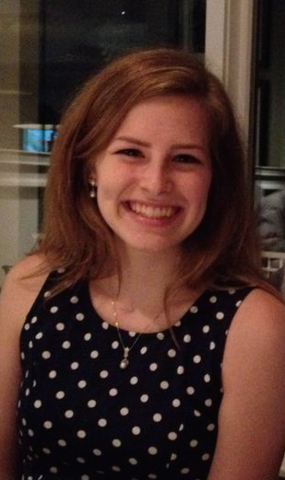
Taran Lichtenberger
STEM Scholarship Recipient, 2015
Taran, WCAS, is from Wheeling, IL. Her majors are Biological Sciences and Plant Biology Concentration, and she will be a sophomore in 2015-2016. She has been awarded a grant for summer research by Northwestern. By her senior year she hopes to be accepted into the Combined Bachelor’s and Master’s Degree in Plant Biology and Conservation.
2016 NOTE: Taran received one of The Alumnae's STEM Scholarships for 2016-17 also.
Karalyn Berman
STEM Scholarship Recipient, 2015
Karalyn Berman, WCAS, is from West Chester, PA. Her major is Integrated Science and Earth and Planetary Science, and she will be a sophomore in 2015-2016. She was awarded an Undergraduate Research Grant through Northwestern’s Office of Undergraduate Research. Her long term goal is to pursue a PhD in Earth Science.
Alexandra Woodhouse
STEM Scholarship Recipient, 2015
Allie Woodhouse, McC, is from Denton, MD. Her major is Industrial Engineering, and she will be a junior in 2015-2016. She placed 2nd in the Deloitte undergraduate consulting case competition and also was one of our STEM Scholarship recipients in 2014. Her long term goal is to be in the field of consulting.
NOTE: Allie received one of The Alumnae's STEM Scholarships in 2014-15 also.
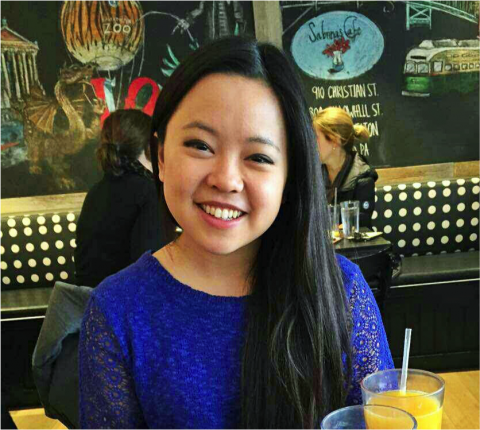
Carolyne Guo
STEM Scholarship Recipient, 2015
Carolyne Guo, WCAS, is from Niskayuna, NY. Her major is Chemistry, and she will be a sophomore in 2015-2016. In high school she patented an innovation with a classmate and received the Bausch & Lomb Excellence in Science Award. Carolyne plans on going to graduate school and pursuing a PhD in chemistry.
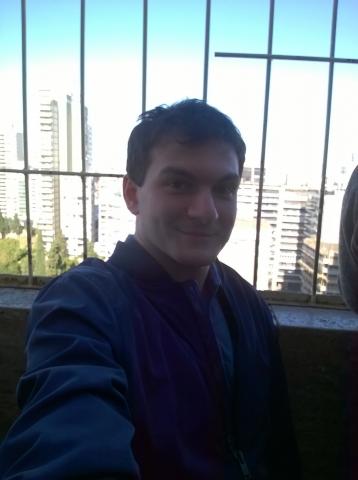
Lautaro Cilenti
STEM Scholarship Recipient, 2015
Lautaro, McC, is from Beaverton, OR. His major is Mechanical Engineering, and he will be a sophomore in 2015-2016. He was awarded the Research Gateway Award by the McCormick School of Engineering and Applied Science. His goal is a Master’s of Science in Mechanical Engineering .
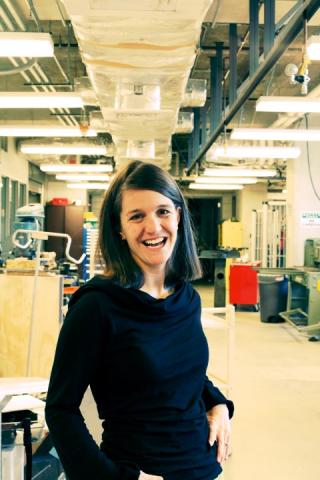
Elizabeth Gerber
Curriculum Innovation Award Recipient, 2014
In a climate of global competition and economic uncertainty, students in diverse disciplines must be equipped with entrepreneurial skills to pursue careers in research and technology. Yet educating students about entrepreneurship can be difficult in a rapidly changing entrepreneurial landscape and alongside already-intensive core curricula. While engineering and business programs increasingly offer entrepreneurship courses as campus-wide electives, these classes typically focus on traditional fundraising approaches, eg. face-to-face pitches to expert panels. Today, however, crowdfunding has made it possible to practice entrepreneurial skills in real world environments through online platforms (ex. Kickstarter). This is particularly attractive to novice entrepreneurs, who otherwise have limited access to traditional financial backing, such as banks or venture capitalists. Because most of the most widely-disseminated crowdfunding platforms only started in 2008 or later, and without existing, tested curricula, it is difficult for faculty to devote development time to such a curriculum. Consequently, few major universities have developed empirically grounded curricula to train students in the use of online crowdfunding in support of entrepreneurial projects. In response to this need, my students and I iteratively developed a self-directed, disseminable curriculum, based on our empirical research, to train Northwestern students to prepare pitch videos for crowdfunding campaigns. We are grateful to the Northwestern Alumnae for making this important work possible.
The name of this award was changed in 2019 from Curriculum Development Award to Curriculum Innovation Award.
Ann Marie Piper
Curriculum Innovation Award Recipient, 2014
The name of this award was changed in 2019 from Curriculum Development Award to Curriculum Innovation Award.
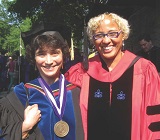
Indira Raman (left)
Curriculum Innovation Award Recipient, 2015
Thought Experiments: An Exploration of Knowing Through Neuroscience and the Humanities
Susie Phillips, associate professor of English, and Indira Raman, professor of neurobiology, will develop a course to understand the human experience by merging neuroscientific, literary and artistic perspectives -- disciplines generally thought to be at opposite ends of the academic spectrum.
The goal of the course is to teach students how to think with and through very different disciplines, learning how to bridge the gap between subjects that would appear to speak different languages.
“Until a couple of centuries ago, scholars made no distinction between science and literature or science and art,” Phillips said. “Indira and I wondered what it would be like to revive this older paradigm and reintegrate these supposedly disparate ways of thinking about thinking into a single classroom. We’re absolutely thrilled that this award will enable us to do just that.”
Reading works like Shakespeare’s “Hamlet” and William Faulkner’s “The Sound and the Fury” alongside scientific writing on neurophysiology, neuropyschiatric disorders and animal behavior, students will explore different perspectives on what constitutes thought, what free will is and isn’t, and what tools we have for making sense of some of the most fundamental aspects of human experience -- emotions, memory, perception, ethics and knowledge.
“We laid down a challenge for ourselves in setting the goal of creating a multidisciplinary course -- one that incorporates totally distinct disciplines, methods and perspectives, rather than one that spans the interface between related disciplines,” Raman said. “It is a pleasure to know that those who reviewed the application are interested in that challenge and that they were willing to validate it.”
The name of this award was changed in 2019 from Curriculum Development Award to Curriculum Innovation Award.

Eric Zaslow
Curriculum Innovation Award Recipient, 2015
Quantitative Reasoning
Zaslow’s course will be part of Bridge, a residential five-week program that provides intensive instruction in pre-calculus mathematics and chemistry. Students will learn to apply quantitative skills to a wide range of topics and problems that will not only help them succeed in future courses at the University but also in everyday, real-world situations. The course will develop a student's ability to "argue with numbers,” Zaslow said. “They will apply basic mathematical skills in making reasoned, quantitative arguments to address questions from a variety of real-world concerns and a host of academic disciplines.”
The course will cover, for example, computing compound interest, assessing the value of a college degree, estimating the cost/benefit of undocumented workers and deciding whether health insurance is worth the expense.
“Society continually reminds me how much our citizens need to be able to understand numerical arguments when making personal financial, medical, environmental and political decisions,” Zaslow said. “I am inspired by the idea that creating a course in quantitative reasoning and, more broadly, creating a platform and vehicle for teaching it, might actually make a bit of difference.”
The name of this award was changed in 2019 from Curriculum Development Award to Curriculum Innovation Award.
Jane Y. Lee, Graduate Fellow
Graduate Fellowship Recipient, 2010
Master of Business Administration, Kellogg School of Management, 2012 Bachelor of Arts, Political Science and Legal Studies, Weinberg College of Arts & Science, 2005
Described by NU professor as “one of the most impressive alumni I’ve met at Northwestern in my twenty years of teaching here. . . intellect, leadership, vision, energy, presentation, she has it all.” President of ASG her senior year, Jane was extremely engaged with the city of Evanston. When an alderman proposed to redraw his student-majority district, she rallied concerned students and citizens to strike down the proposal, and she organized events to improve town-gown relations. Upon graduation, Jane joined Deloitte Consulting, where she helped build the firm’s Midwest Public Sector practice and led a team that redesigned Wisconsin’s voter registration system. She has shown herself to be a natural leader with a passion for public service. As she pursued her MBA at Kellogg, she worked concurrently on a MPA (Master in Public Administration) at the Harvard Kennedy School of Government.